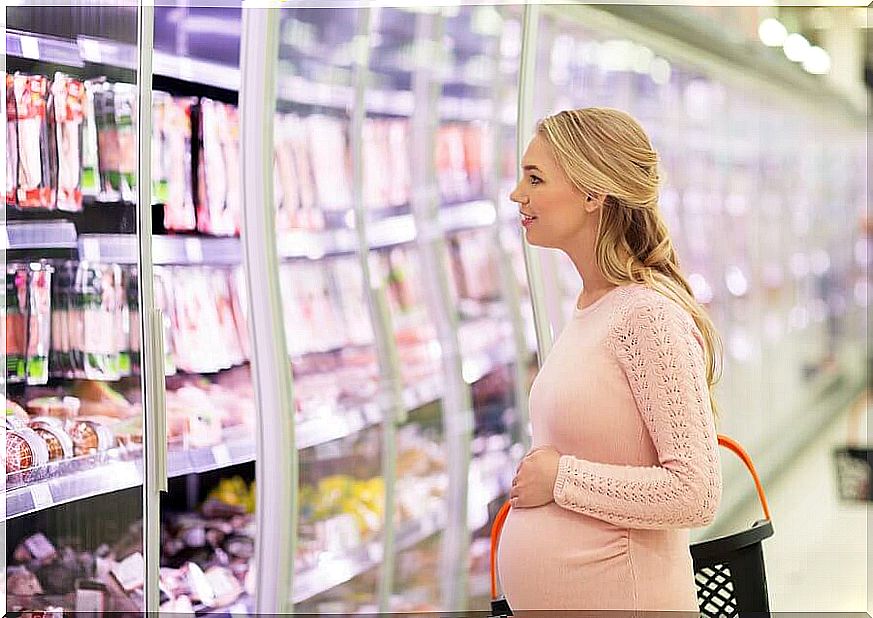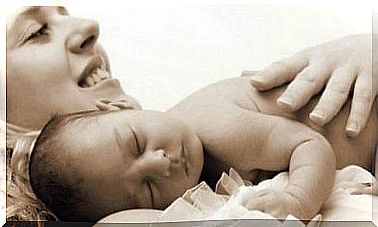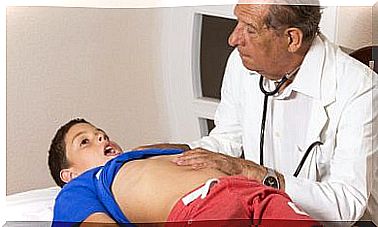Toxoplasmosis And Forbidden Foods During Pregnancy

There are some diseases that expectant mothers can be affected by that can end up affecting the fetus. One of these diseases is toxoplasmosis, which is linked to certain foods.
Certain infections can affect expectant mothers during pregnancy. Some of them can spread to the fetus and cause serious consequences. In this article, we will talk about toxoplasmosis. We will also provide you with a list of foods to avoid while you are pregnant.
Toxoplasmosis is a foodborne illness. It is caused by a parasite called toxoplasma gondii. It is very common and, as a rule, does not cause major problems. However, it can cause problems if it reaches the placenta as it can spread to the growing baby.
In this regard, it is important to pay attention to the foods you consume in order to prevent this disease. First of all, we will explain the effects that the disease can have on newborns.
Effects of toxoplasmosis on the fetus and newborns
Babies affected by toxoplasmosis can be born prematurely and become underweight. This disease can also leave scars on their retina and give them jaundice. On the outside, you may notice jaundice if the baby has a yellowish skin color. However, all of these are mild problems.
On the other hand, there are more serious problems. One of these is hydrocephalus. It is a condition in which fluid accumulates in the baby’s brain. It can make the head physically bigger and give the baby constant migraines. Furthermore, some newborns may experience chorioretinitis, which is a condition that affects the eyes.
In the worst case, this infection can develop into a very dangerous condition called erythroblastosis. In this disorder, the mother produces antibodies that attack the fetus’ red blood cells. As a result, there will always be a risk of prenatal death.
We should mention that fetuses in the first trimester of pregnancy are at the highest risk. At this stage, it can be fatal if the baby gets an infection.

Toxoplasmosis and forbidden foods: pay attention to meat
All animals that eat contaminated grass with cat feces are carriers. Even handling raw meat can transmit the infection to mothers. So, be very careful when cooking food with raw meat.
To avoid risks, we recommend eating canned meat. Many specialists rely on the freezing process to prevent parasites from growing in meat or sausages. Among all other animals, pork is the type of meat associated with the greatest risk.
However, meat products are not the only foods that can have this problem. Fruits and vegetables can also be contaminated. Therefore, it is important to wash them well. Be especially careful if you eat them raw.
Other risky foods are seafood, fish, cheeses and unpasteurized milk and coffee. According to seafood, it is important to wash and cook them properly.
Tips to avoid toxoplasmosis
A good recommendation is to put sushi restaurants on the shelf in the first months of pregnancy. When eating fish, eat fish without bones. It is also a good idea not to eat sausages. If you do this, then always freeze them before eating them.
Expectant mothers are at risk of becoming infected, even if they are just handling raw meat. Therefore, you should carefully wash your hands before, during and after handling raw meat.
Even contact with dirt or grass can be risky. It is important that you wash your hands and face thoroughly during the first trimester. Antibacterial soap is a good investment.
Also, if there are cats in the home, it is a good idea to check it with the vet. You want to make sure that your pet is not a carrier of the disease. Indoor cats that eat dry food and canned food are, as a rule, not carriers.

How can a pregnant woman know if she is infected?
There is a medical test that can tell if pregnant women have the infection. It’s a blood test, called a toxo test. Most gynecologists actually require it.
There are three possible outcomes. If it is negative for IgG and IgM, it means that the pregnant woman is not a carrier of the disease. It also means she has never had it. The result can show a positive IgG and a negative IgM. This is because she has had the disease before and is already immune.
Finally, the mother may have a negative IgG and a positive IgM. This means that she, at present, has the infection. In this case, the doctor will perform other tests to get more information about the duration and intensity of the infection.









